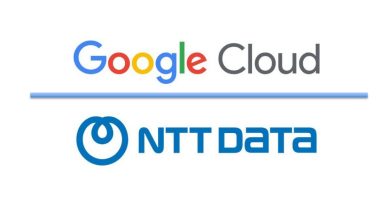
by George Harb, Vice President, ANZ, OpenText
 As organisations continue to invest in new technology infrastructure, we increasingly see businesses retire legacy applications and migrate to the cloud. This however can be a tedious process as organisations need to ensure they efficiently retire information from the old technology and store it in the cloud for easy access. When archiving data to the cloud, it is imperative organisations understand how to store data efficiently and cost-effectively.
As organisations continue to invest in new technology infrastructure, we increasingly see businesses retire legacy applications and migrate to the cloud. This however can be a tedious process as organisations need to ensure they efficiently retire information from the old technology and store it in the cloud for easy access. When archiving data to the cloud, it is imperative organisations understand how to store data efficiently and cost-effectively.
Cloud migration refers to the process of moving digital operations onto the cloud platform. This specifically means transferring on-premises data centres or legacy infrastructure to the cloud.
Why businesses need to migrate to cloud
Especially in today’s business climate, it has never been more important to stay competitive and innovative. One way businesses can do this is by optimising their business efficiency and to do that, it is necessary for businesses to migrate to the cloud.
With cloud technology, businesses are able to access files and interpret complicated data more easily and with enhanced security benefits. From a business growth perspective, the cloud continues to prove itself as a limitless opportunity for organisations. Cloud providers offer flexibility that enables teams to optimise and accelerate workflows. For example, employees are able to easily retrieve and access data in a single platform, which allows them to address customer queries in a timely manner and ultimately improve business outcomes.
With cloud computing, employees have access to applications from anywhere in the world at any given time, allowing employees to work efficiently within their roles. This is especially necessary today, as global organisations have adopted a hybrid work schedule with such flexibility and ease of access.
On top of this, the cloud offers security benefits, which are imperative for Singaporean businesses today. Organisations must be vigilant and ensure the data of consumers is protected. Cloud backs up data onto its servers which are protected behind a firewall. There are also additional security cloud solutions that safeguard the organisation’s data that might be worth it for certain organisations to look into.
Retiring information that sits on previous applications
As more businesses are moving to the cloud, organisations are under pressure to do so in order to keep up with the competition and not fall behind. However, this can be a complex task for some businesses, as they may not be able to effectively move all of their data to the cloud without interrupting business operations. Hence businesses will need to learn and prioritise which aspects of the business need to remain on previous applications and which parts must be moved to cloud-first.
To do this successfully, these organisations will need to examine their budgets and make the necessary business decisions pertaining to the cloud. For example, smaller businesses may only require server functions like an email server or an app server that could remain on-site. To do this, it is crucial to consider the compatibility of the business server-side software alongside their budgets.
Migrating to cloud in a cost-effective and flexible manner
This has proven to be a challenge businesses continually face because they fail to understand their business needs, budgets and constraints. Cloud environments are dynamic and can be adjusted at a moment’s notice. Once business needs and requirements have been established, business leaders are able to research the relevant services offered by cloud providers, their partners and the overall costs.
Today cloud adoption has become a popular option for companies that are looking to streamline efficiency and make their systems and data available to employees anywhere in the world. More businesses are adopting the cloud because it provides tech flexibility that can enhance business processes. Cloud technology is the future for businesses and as technology continues to evolve, the benefits of the cloud will also expand.




